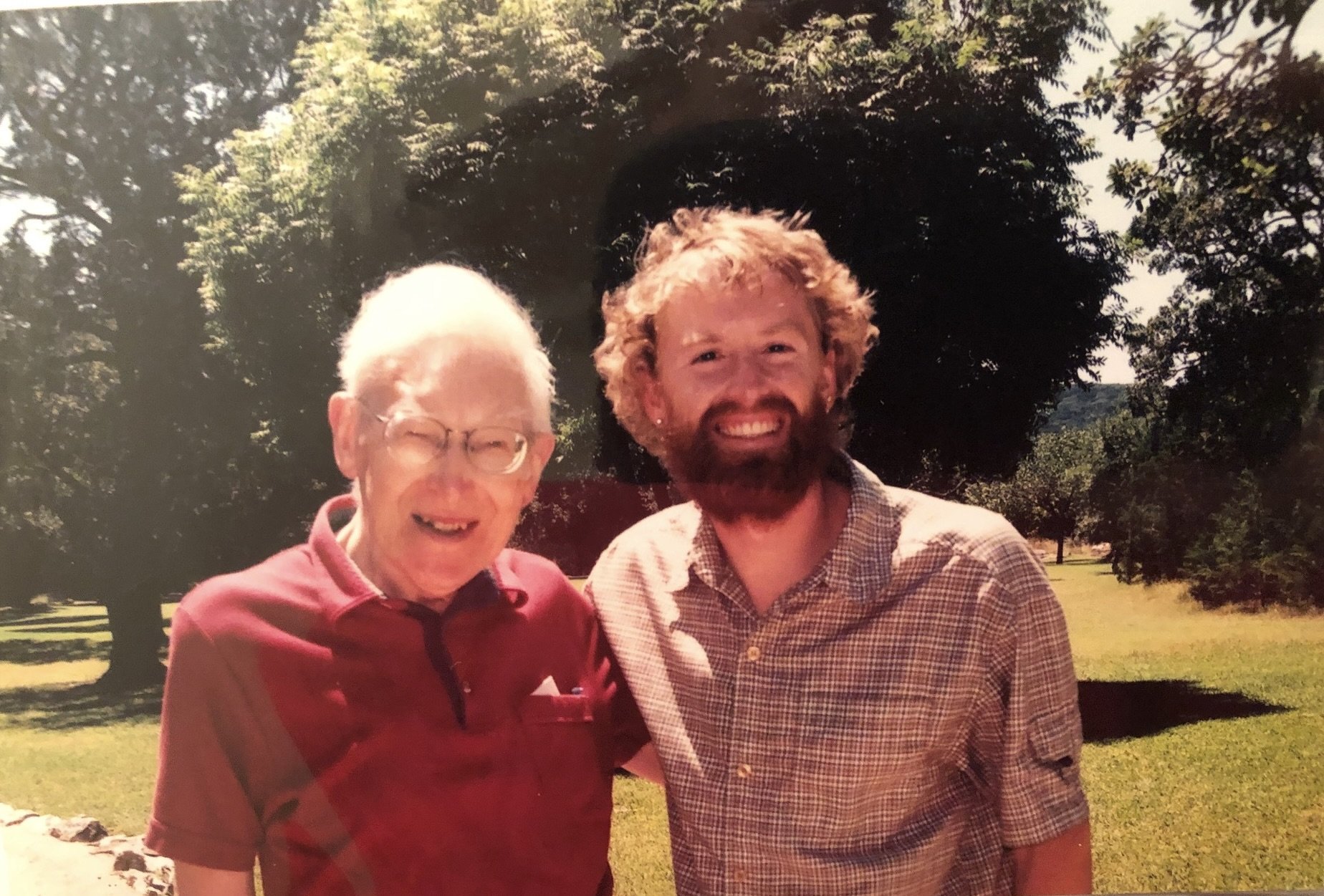The True Purpose of Theology
Hanging out with the theologian J. I. Packer (for whom I TA’d at Regent College) at a Laity Lodge retreat.
I was asked by my peoples at Fuller Theological Seminary to record a video for the theology class that I’m teaching this coming winter term, and since I rarely talk about what I actually do for my day job on social media, I figured I’d share it here too (see below).
I always consider it an honor to teach theology, and I do it with plenty of fear and trembling. I don’t think I ever dreamed, when I first arrived at Regent College nearly 30 years ago, that I’d one day be teaching systematic theology.
It all seemed impossibly magical and academically herculean at the time. Now, I think of it simply as another task—like playing basketball professionally or software engineering—that requires discipline, tenacity, careful attention, and a natural aptitude for the work.
And lots of humility.
In my opening lecture at the start of the term, I usually tell my students seven things about theology. Here’s the Cliff’s Notes version of that lecture:
1. Theology, at its best, is informed by the local church, the historic church, and the global church. All three must be at the table for theology to work well.
2. Theology, at its best, cultivates in us the virtues of reading books carefully, critically and charitably. You don’t have to love everything that you read in my class but you do need to offer its authors the “neighbor love” that Jesus demands of us all.
3. Theology, at its best, reckons seriously with the possibility and mystery of God-talk. But our God-talk is not something to be “mastered”; it is instead, most fundamentally, a triune mystery to be entered into personally and relationally.
4. Theology, at its best, always involves a dynamic relationship between “critical” theology and “creedal” theology: with that which must be wrestled with faithfully and that which has been handed down to us by the faithful.
5. Theology, at its best, invites a student on a journey from “first naïveté” —> skepticism —> “second naïveté”: from a childlike faith to a critical faith to a mature childlike faith.
6. Theology, at its best, enables a student to read the world theologically and to live in the world theologically, the former done with great care and the latter done always graciously.
7. Theology, at its best, results in an increased love of God, a love of Christ’s Body, a love of one’s neighbors, and a joyful and irrepressible sense of wonder about this world that God so loves.
We’ll see you in class!!
(As a postscript, let me add a last thing here. One of the funnest parts about teaching theology is figuring out the best pairings of wine and cheese, as it were, or, in the parlance of my class, olden writings with contemporary writings.
In the case of my class this coming term, my students will read Athanasius alongside Ellen Davis, Augustine alongside James Cone, Basil of Caesarea alongside Gordon Fee, Adrienne von Speyr alongside Sung Wook Chung, Jules Martínez-Olivieri alongside Marianne Meye Thompson, and many more.
It's such a great opportunity for my students to hear how voices both ancient and modern, both in the Global South and the Global North, echo each other, while also saying things in unique ways that deserve a careful hearing, and how specific contexts both historical and cultural shape our ideas of God, while also offering a fresh encounter with the good news of Jesus Christ across such contexts.)
I got a chance once to impersonate the NT scholar, Gordon Fee, and he took it with such good humor.

